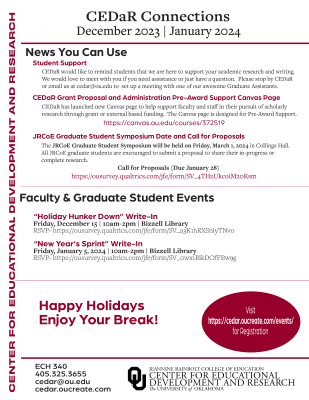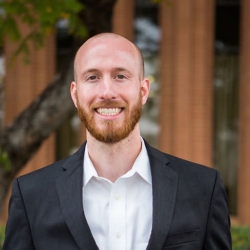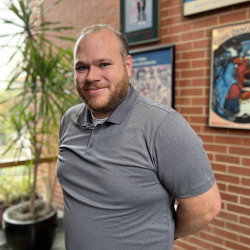The Center for Educational Development and Research in the Jeannine Rainbolt College of Education at the University of Oklahoma is entering a new era with new leadership and plans for the future.
Associate Dean for Educational Research Ben Heddy took over the center's leadership in summer 2023 and works with CEDaR Associate Director Patrick Tadlock and graduate research assistants Huiting Zhou and Vaughn Zrain-Negley. The purpose of CEDaR is to provide support for the research and scholarship of faculty and graduate students in the College of Education, including data services, academic editing, survey design and administration, and grant-writing support. In addition, CEDaR regularly sponsors workshops on research-related software.
In recent years, with multiple leadership changes, the center became viewed as a place to print large posters and not much else. Heddy and Tadlock are working to change that reputation.
“My vision for CEDaR is to be a part of our research foundation for the college,” Heddy said. “While we will continue with our poster work, as that is a rare and useful service that most colleges and universities don’t offer, we are much bigger than just posters.”
One of Heddy’s first goals in the role was to move CEDaR into a position to become a resource for pre- and post-award grant execution. For faculty who are new to writing grants, there is a lot to learn and numerous steps to complete, such as designing the study, creating an info sheet, working with the Institutional Research Board, creating a budget, and putting together a team.




